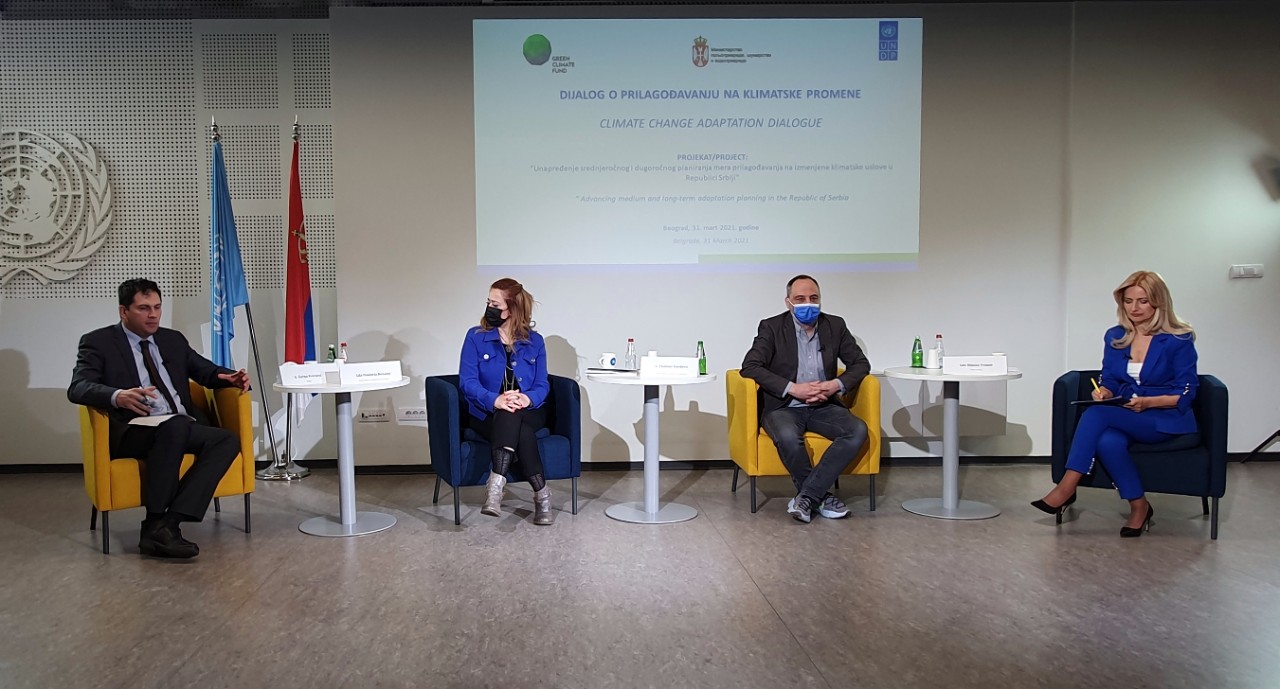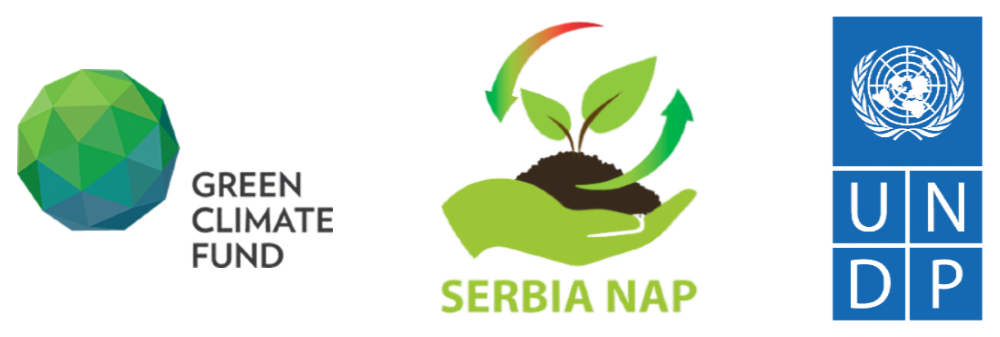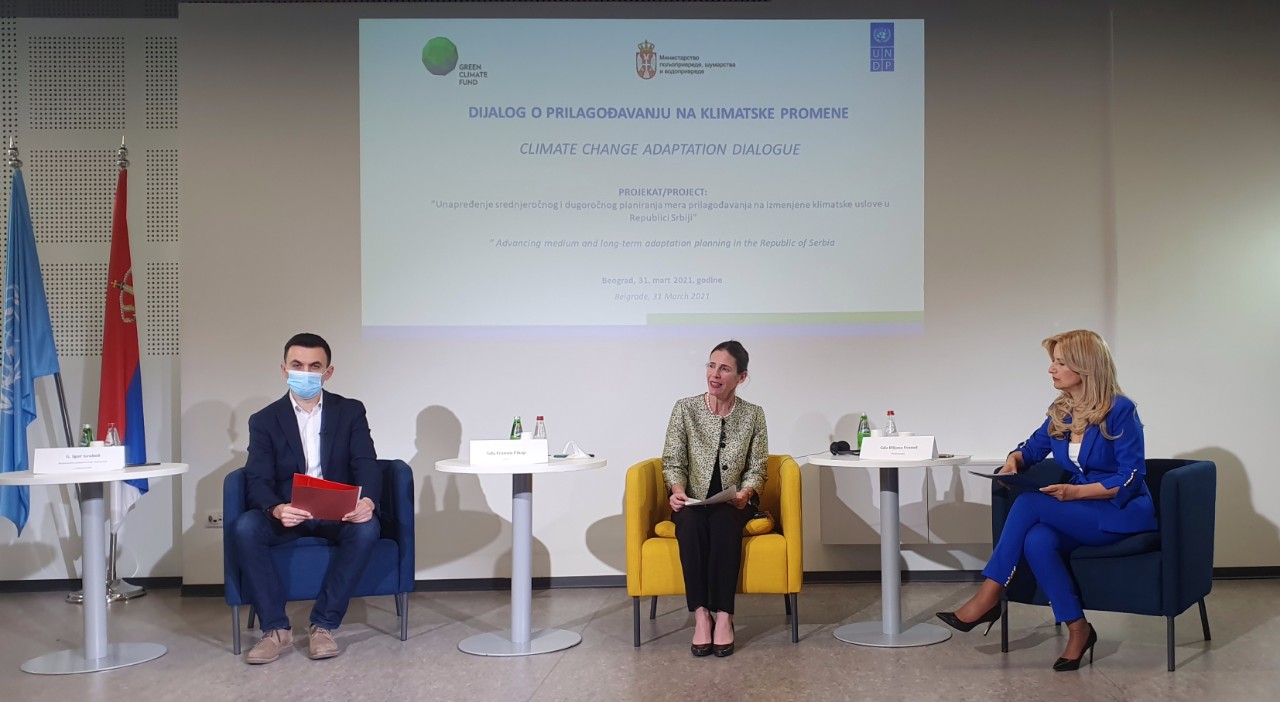-
Mar 31 2021 The first Dialogue on Serbia’s Climate Change Adaptation held in Belgrade
Belgrade, March 31st 2021 – Today, the United Nations Development Program (UNDP) organized a dialogue about the possible social and economic consequences of climate change in Serbia, the adaptation preparedness of our country, the price of climate resilience, and how to mobilize the funds to meet this price. This dialogue is part of the process of the National Climate Change Adaptation Plan, which UNDP is developing in partnership with the Ministry of Agriculture, Forestry and Water Management, with the support of the Green Climate Fund (GFC).
The dialogue participants underlined that climate change had a negative impact on food and energy production, biodiversity, availability of drinking water, and infrastructure, at the same time imposing more burden on the healthcare and social welfare service systems.
Serbia is in a region that is very vulnerable to climate change, with the average temperature growth higher than the global average. Combined with the rainfall regime change, the further temperature growth may double the number and intensity of heat waves, which would additionally raise the risk of floods, draughts and forest fires.
The findings of UNDP’s report indicate that climate change may slow down the economic development of Serbia, especially in the sectors of agriculture, water management, forestry, energy, transport and infrastructure. Extreme weather events, such as the 2014 floods, have caused more than 6 billion USD of damage since 2000, and if Serbia doesn’t promptly implement the adequate measures, by the end of the decade, it may lose the same amount of money.
The experts participating in the dialogue emphasized that climate change adaptation should become a part of every long-term development strategy. One of the key steps that Serbia has implemented so far was to adopt the Law on Climate Change, which turned the adequate response to climate change into a legally binding obligation.
In Serbia, extreme weather events have a growing impact on the availability of water for hydro power plant energy production, and they’re also causing a surge in energy needs during the summer, due to intensified use of air-conditioning for cooling. Furthermore, irrigation planning, which is necessary to keep the agricultural crop yields unchanged, also largely depends on the availability of water.
“One of the priorities of the Ministry, as a necessary adaptation measure, is to establish an irrigation system on as much arable land as possible. At the same time, our efforts are focused on building an efficient and effective system that will reduce the pressure of agriculture on our water resources. Adaptation measures—such as introducing climate adaptive cattle breeds and crops, adjusting the schedule of agricultural works to the changed crop calendar, crop rotation—are some of the measures that do not require additional investments, but they can greatly contribute both to reducing the negative environmental impacts and to producing healthier, higher quality food,” said Igor Grabež, representative of the national team for cooperation with GCF, on behalf of the Ministry of Agriculture, Forestry and Water Management.
 [/vc_column][/vc_row]
[/vc_column][/vc_row]Francine Pickup, Resident Representative of UNDP in Serbia, said that, thanks to the support from the Green Climate Fund, UNDP and the Government of Serbia were working together on the first National Adaptation Plan, so that Serbia could timely implement the necessary measures for climate change adaptation. “We provide support to institutions at the national and local levels to include climate change aspects into their strategic planning, legislation and investment planning. Within the NAP, we’re already preparing some specific adaptation measures for the most vulnerable sectors, as well as a sustainable strategy for their funding. Building climate resilience will bring Serbia closer to achieving the Sustainable Development Goals, especially Goal 13 which is about urgent climate action,” said Pickup.
According to UNDP reports, Serbia lacks the funds to implement the climate change adaptation measures at the national and local levels.
The dialogue participants believe that the state should involve the private sector in the transition toward a low-carbon, circular economy, in order to cover the costs of building climate resilience. An additional motivation for making such a move is the EU Economic and Investment Plan for the Western Balkans, which foresees 9 billion EUR of grant to the countries of this region, for the green transformation of economy and the public sector.
“The Green Climate Fund supports the Western Balkans countries in planning an optimal response to climate change, by improving the coordination between the competent institutions, collecting data on climate change impact, involving the private sector, and increasing investments into the adaptation measures. The regional cooperation offers an opportunity to these countries to jointly tackle the issue of climate change adaptation. While many sectors have already begun with the process of data collection, it is necessary to improve the availability of data on climate change risks and impacts, as well as on the most vulnerable sectors. This data is of crucial importance, not only for an efficient planning of adaptation, but also as the basis to crate and develop the financial support measures,” said Svetlana Frenova, GFC Advisor for East Europe and Central Asia.
The dialogue included the representatives of the Government of the Republic of Montenegro and the Government of the Republic of North Macedonia, as well as the representatives of the UNDP offices in Bosnia and Herzegovina and Moldova, who have contributed to the exchange of experience and strengthening of cooperation in the area of climate change resilience between the countries in this region.
The dialogue was part of the project Advancing medium and long-term adaptation planning in the Republic of Serbia – NAP, funded by the Green Climate Fund (GCF) and implemented by the UNDP, in partnership with the Ministry of Agriculture, Forestry and Water Management.


